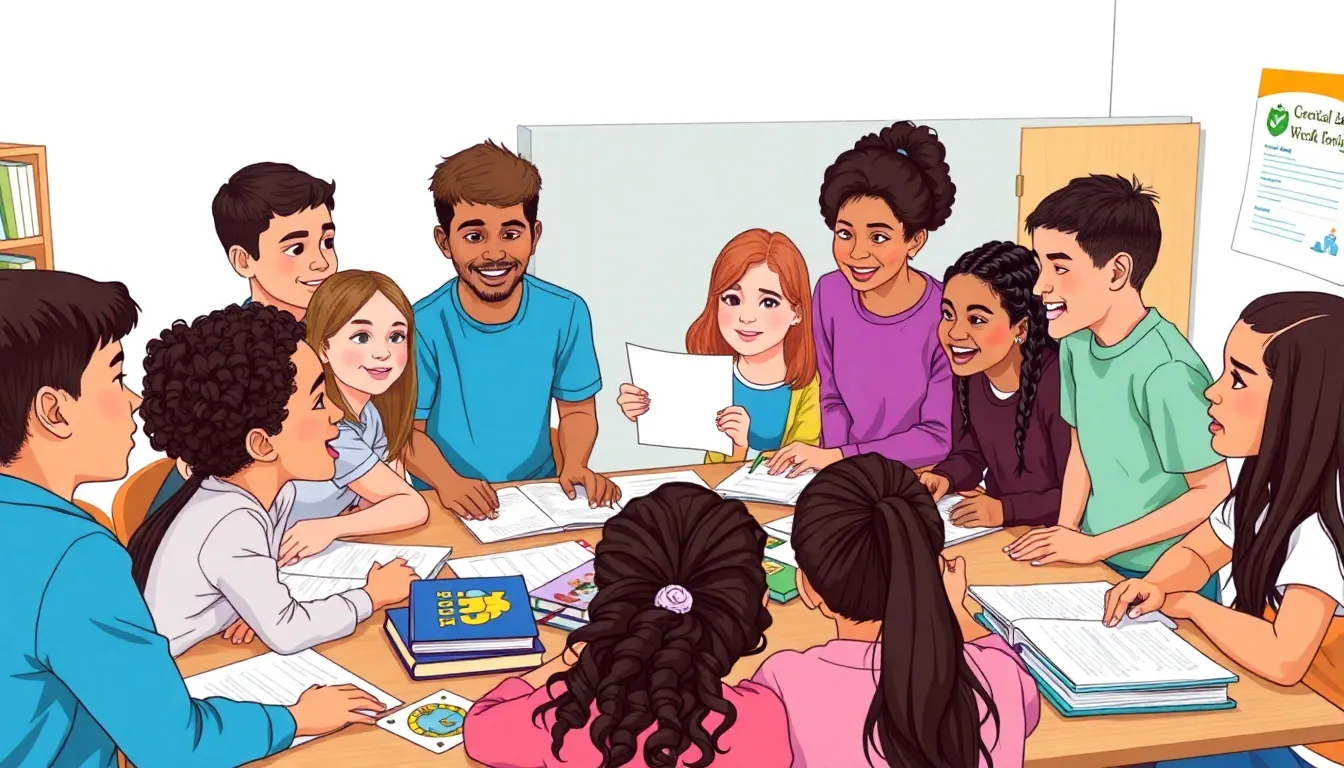Table of Contents
ToggleMental health education isn’t just a buzzword; it’s the key to unlocking a happier, healthier society. Imagine a world where people understand their emotions as well as they understand their favorite Netflix series. That’s the power of mental health education. It equips individuals with the tools to navigate life’s ups and downs, turning potential breakdowns into breakthroughs.
In a world where stress and anxiety often feel like unwelcome roommates, knowing how to manage mental health is crucial. It’s like having a GPS for your mind—guiding you through the twists and turns of life. By fostering awareness and understanding, mental health education empowers people to seek help, support one another, and break the stigma surrounding mental health issues. So, let’s dive into the importance of mental health education and why it deserves a front-row seat in our lives.
Importance Of Mental Health Education
Mental health education plays a crucial role in shaping a more informed society. It enhances emotional resilience, enabling individuals to tackle life’s challenges.
Understanding Mental Health
Understanding mental health fosters awareness of emotional well-being and personal strengths. It equips individuals with tools to identify their emotions and recognize signs of distress. Education promotes healthy coping strategies, empowering people to respond to stress and anxiety. Knowledge about mental health can lead to early intervention, significantly improving outcomes for those experiencing difficulties. Individuals who comprehend their mental health can actively support friends and family, creating a more supportive community.
Reducing Stigma
Reducing stigma surrounding mental health is essential for societal acceptance. Education highlights that mental health conditions are common, affecting one in five adults in the U.S. per the National Institute of Mental Health. Awareness contributes to more open conversations, encouraging people to seek help without fear of judgment. Training in schools and workplaces cultivates a culture of understanding, showing that vulnerability is not a weakness. Engaging in discussions about mental health can transform social perceptions, making it easier for individuals to share their struggles and access necessary support.
Mental Health Education In Schools

Mental health education plays a crucial role in fostering a supportive environment for students. Implementing structured programs can significantly enhance understanding and awareness around mental health topics.
Curriculum Integration
Integrating mental health education into school curriculums raises awareness among students. Lessons covering emotional well-being, stress management, and coping strategies prepare students for life’s challenges. Research shows that mental health education, woven into subjects like health and physical education, aids in developing students’ emotional literacy. Studies indicate that schools incorporating these elements see improved academic performance and decreased disciplinary issues. Diverse activities, such as workshops and peer-led discussions, can further engage students and create an open dialogue about mental health.
Teacher Training
Equipping teachers with the right knowledge and skills is essential for effective mental health education. Training programs focused on identifying signs of distress empower educators to support students more effectively. Professional development workshops that cover mental health issues provide teachers with strategies to facilitate discussions in the classroom. Schools prioritizing comprehensive training for their staff foster a culture of understanding and acceptance. Research indicates that trained teachers can make a noticeable difference in students’ willingness to seek help. Creating a supportive environment hinges on educators feeling confident in addressing mental health topics.
Community-Based Mental Health Education
Community-based mental health education serves as a vital resource, empowering individuals to understand their mental well-being. This approach fosters connections, encouraging dialogue around mental health within communities.
Workshops And Seminars
Workshops and seminars provide structured opportunities for learning about mental health. These sessions can cover topics like stress management, mindfulness, and emotional resilience. Participants often gain practical skills that they can apply in their daily lives. Local experts can lead these events, offering valuable insights and fostering a sense of community support. Engaging formats, such as interactive discussions, enhance participant involvement and retention of information. Local organizations may sponsor these initiatives, increasing accessibility for attendees.
Collaboration With Local Organizations
Collaboration with local organizations amplifies mental health education’s reach and impact. Partnerships can include schools, healthcare providers, and community groups. By working together, these entities can develop tailored programs that address specific community needs. Shared resources often reduce costs, making education more accessible to everyone. Additionally, joint efforts can raise awareness about mental health services available in the area. Effective collaboration enhances the effectiveness of outreach efforts, ensuring individuals receive necessary support and information.
Digital Mental Health Education Resources
Digital mental health education resources play a crucial role in promoting awareness and understanding. They provide accessible platforms for learning about mental well-being.
Online Courses And Webinars
Online courses and webinars offer structured learning opportunities about mental health topics. Participants can explore emotional resilience, stress management, and coping strategies. Many reputable organizations, like the National Alliance on Mental Illness (NAMI), provide free courses tailored to various audiences. Learners benefit from expert insights and practical tips that can be applied in daily life. Interactive webinars enhance engagement, allowing participants to ask questions and share experiences. Such resources empower individuals to enhance their mental health literacy effectively.
Social Media Initiatives
Social media initiatives create a dynamic environment for mental health education. Platforms like Instagram and Twitter host campaigns that raise awareness and reduce stigma. Hashtags such as #MentalHealthAwareness connect users with valuable resources and community support. Engaging content, including infographics and videos, simplifies complex topics. Organizations frequently collaborate with influencers to reach broader audiences, promoting open discussions about mental well-being. These innovative approaches not only inform but also encourage individuals to take an active role in their mental health journey.
Mental health education serves as a cornerstone for fostering resilience and understanding in individuals and communities. By equipping people with the tools to navigate emotional challenges and recognize signs of distress, it paves the way for healthier lives. The integration of mental health topics into schools and community programs not only enhances awareness but also cultivates supportive environments where open conversations can thrive.
As digital resources continue to expand, they offer accessible platforms for learning and engagement. This widespread knowledge empowers individuals to take charge of their mental well-being and encourages a culture of support and acceptance. Prioritizing mental health education can transform lives and communities, making a lasting impact on society as a whole.





